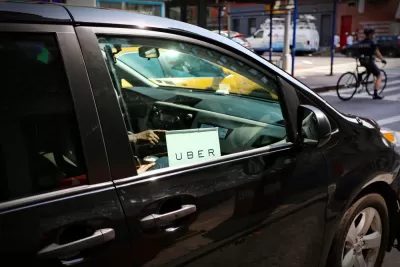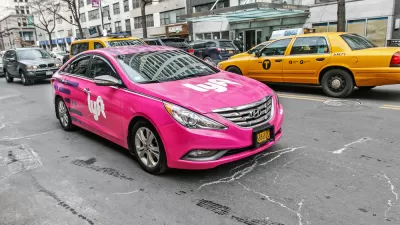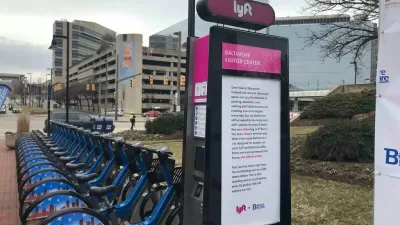A judge ruled against California's Proposition 22, which let ride-hailing and delivery businesses classify workers as independent contractors and discouraged unionization efforts.

Margot Roosevelt and Suhauna Hussain report on a decision that reopens the debate on the gig economy in California and could have lasting repercussions as ride-hailing companies seek to fight regulation in other states. Last Friday, "a state Superior Court judge invalidated a 2020 ballot proposition that allowed Uber, Lyft, DoorDash, Instacart and other app-based businesses to classify their workers as independent contractors."
Historically, "California courts are often hesitant to overturn ballot measures because the move can be seen as challenging the will of the people." But "[i]n a lawsuit brought by the Service Employees International Union and several drivers, Alameda County Superior Court Judge Frank Roesch ruled that Proposition 22 is unconstitutional and unenforceable" because it "infringes on the power of the Legislature explicitly granted by the state Constitution to regulate compensation for workers’ injuries." According to Judge Roesch, "[b]y including language aimed at preventing drivers from unionizing, the ballot measure also violates a constitutional provision that requires laws and initiatives to be limited to a single subject." Because "a ballot initiative cannot be amended after it is passed by voters, any unconstitutional provision renders it unenforceable."
"Uber and other gig economy companies spent more than $220 million last year in the nation’s costliest-ever ballot initiative campaign to exempt their drivers from a 2019 law, AB 5, requiring gig workers across many industries to be classified as employees with benefits such as minimum wage, overtime and workers’ compensation in case of injury." Uber plans to appeal the decision.
FULL STORY: Prop. 22 is ruled unconstitutional, a blow to California gig economy law

Planetizen Federal Action Tracker
A weekly monitor of how Trump’s orders and actions are impacting planners and planning in America.

Congressman Proposes Bill to Rename DC Metro “Trump Train”
The Make Autorail Great Again Act would withhold federal funding to the system until the Washington Metropolitan Area Transit Authority (WMATA), rebrands as the Washington Metropolitan Authority for Greater Access (WMAGA).

The Simple Legislative Tool Transforming Vacant Downtowns
In California, Michigan and Georgia, an easy win is bringing dollars — and delight — back to city centers.

The States Losing Rural Delivery Rooms at an Alarming Pace
In some states, as few as 9% of rural hospitals still deliver babies. As a result, rising pre-term births, no adequate pre-term care and "harrowing" close calls are a growing reality.

The Small South Asian Republic Going all in on EVs
Thanks to one simple policy change less than five years ago, 65% of new cars in this Himalayan country are now electric.

DC Backpedals on Bike Lane Protection, Swaps Barriers for Paint
Citing aesthetic concerns, the city is removing the concrete barriers and flexposts that once separated Arizona Avenue cyclists from motor vehicles.
Urban Design for Planners 1: Software Tools
This six-course series explores essential urban design concepts using open source software and equips planners with the tools they need to participate fully in the urban design process.
Planning for Universal Design
Learn the tools for implementing Universal Design in planning regulations.
Smith Gee Studio
City of Charlotte
City of Camden Redevelopment Agency
City of Astoria
Transportation Research & Education Center (TREC) at Portland State University
US High Speed Rail Association
City of Camden Redevelopment Agency
Municipality of Princeton (NJ)





























